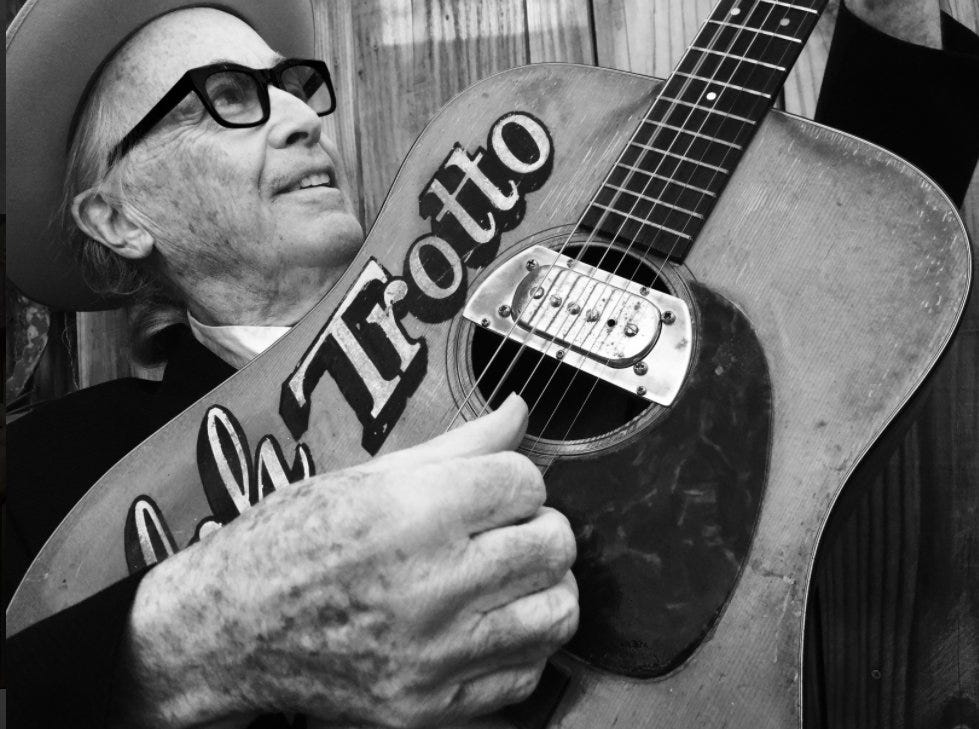Ry Cooder
Ry Cooder is an American musician, songwriter, record producer, and film score composer.
Ry Cooder is an American musician, songwriter, record producer, and film score composer, renowned for his slide guitar work, his interest in roots music from the United States and beyond, and his collaborations with traditional musicians from many countries. His career has been marked by exploration, innovation, and a deep reverence for musical traditions, influencing a wide range of genres and artists.
Early Life and Career Beginnings
Ryland Peter "Ry" Cooder was born on March 15, 1947, in Los Angeles, California. From a young age, he developed an interest in music, particularly folk and blues. He began playing guitar in his early teens, influenced by the likes of Blind Blake, Woody Guthrie, and Lead Belly. By the mid-1960s, Cooder was already a proficient musician and started his professional career as a session guitarist, contributing to records by various artists.
The 1960s and 1970s: Rising Fame
Cooder's skill as a guitarist led him to work with some of the most prominent musicians and bands of the time, including The Rolling Stones, Neil Young, and Captain Beefheart. His reputation as a slide guitarist was unmatched, and his ability to blend different musical styles set him apart. In 1970, he released his self-titled debut album, "Ry Cooder," which showcased his eclectic taste and mastery of American roots music.
Throughout the 1970s, Cooder released several albums, including "Into the Purple Valley" (1972), "Boomer's Story" (1972), and "Paradise and Lunch" (1974), which further cemented his status as a pioneer in bringing traditional, obscure, and forgotten music to a wider audience. His work during this period was characterized by a mix of blues, folk, gospel, and early American music, with a particular emphasis on storytelling through song.
The 1980s and 1990s: Exploring World Music
Cooder's interests expanded globally in the 1980s and 1990s. He ventured into film score composition, creating memorable soundtracks for movies such as "Paris, Texas" (1984) and "Crossroads" (1986). His work in film further demonstrated his versatility and deep understanding of various musical forms.
In 1997, Cooder produced and played on "Buena Vista Social Club," an album that became a worldwide phenomenon. The project involved a group of veteran Cuban musicians, some of whom were in their 90s, and highlighted Cuban son music. The album's success led to a documentary film of the same name by Wim Wenders, further increasing Cooder's influence on the world music scene.
2000s to Present
Cooder has continued to release solo albums and collaborate with other artists, exploring themes of social justice, historical narratives, and musical heritage. Albums like "Chávez Ravine" (2005), which tells the story of a Mexican-American community displaced in the 1950s, and "Pull Up Some Dust and Sit Down" (2011), which addresses contemporary social and political issues, reflect his ongoing commitment to storytelling through music.
Legacy
Ry Cooder's contribution to music is profound. His work has not only preserved and revitalized many forms of traditional music but has also influenced countless musicians. His explorations into various musical cultures and his collaborations with artists from around the world have made him a pivotal figure in the appreciation of global music traditions. Through his albums, collaborations, and soundtracks, Cooder has demonstrated an unparalleled ability to bridge cultures and genres, making him a true ambassador of the world's music.

